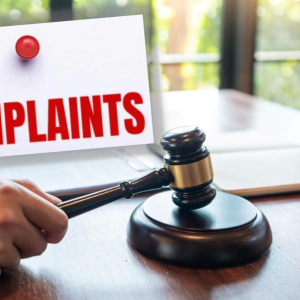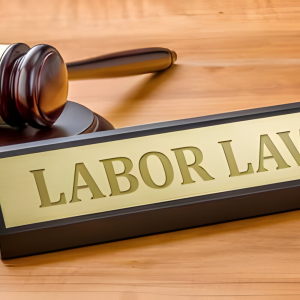Short-term rental regulations in Dubai have been revised once again, offering fresh opportunities and clearer guidelines for Airbnb hosts and property owners across the city. The new framework aims to balance investor confidence, guest safety, and community well-being, all while supporting Dubai’s growing tourism and hospitality industry. With these updates, homeowners, landlords, and investors now have a clearer roadmap to operate legally and profitably in the short-term rental space.
Why Dubai Updated Its Short-Term Rental Rules
Dubai’s short-term rental market has exploded over the past few years, fueled by the global popularity of platforms like Airbnb, Booking.com, and Vrbo. As the city welcomes millions of international visitors annually, many travelers now prefer the comfort and flexibility of serviced apartments and vacation homes over traditional hotels.
Recognizing this shift, Dubai’s Department of Economy and Tourism (DET) has updated its regulations for 2025 to ensure the short-term rental ecosystem remains secure, professional, and transparent. The revised rules aim to protect guests’ interests while encouraging responsible hosting practices that align with Dubai’s vision of sustainable tourism growth.

New Licensing Requirements for Airbnb Hosts
One of the key changes under the new regulations involves the licensing process for short-term rentals. Every property listed for short-term stays in Dubai must now have an official permit issued by the Dubai Department of Economy and Tourism (DET).
The permit application process has been simplified to encourage compliance. Hosts can now apply online through the DET portal or the Dubai REST app by submitting property ownership documents, identification, and basic property details.

Once approved, the property receives a unique registration number that must be displayed on all advertisements and listings. This ensures that only verified and licensed properties appear on Airbnb and similar platforms.
The new rule not only enhances guest confidence but also helps the government maintain accurate records of active short-term rentals operating in the city.
Streamlined Registration for Individual and Corporate Hosts
Under the revised system, both individual homeowners and corporate property management companies can register for short-term rental operations.
Individual hosts who own a single property can apply under a personal license, while those managing multiple properties or operating as a business must apply for a corporate license.
This differentiation allows Dubai to better regulate the scale of operations and ensure that all hosts meet the same quality and safety standards regardless of their property portfolio size.
Updated Guest Safety and Maintenance Standards
The updated regulations place a strong emphasis on guest safety and property maintenance.
Every Airbnb host is now required to ensure their property meets the safety criteria set by Dubai Civil Defence and DET. This includes having functional fire alarms, extinguishers, clear emergency exits, and regular maintenance checks for electrical and plumbing systems.
Additionally, hosts must maintain cleanliness standards and provide basic amenities such as linens, toiletries, and safe drinking water. Any failure to comply with these safety or hygiene measures could lead to fines or suspension of the short-term rental license.
The goal is to maintain Dubai’s global reputation as a safe, comfortable, and world-class travel destination.
Enhanced Tax and Fee Structure
The revised rules also outline updates in the tourism fee and taxation structure for short-term rentals.
Airbnb hosts are required to collect a “Tourism Dirham Fee” from guests, which is paid to the DET. This fee supports Dubai’s tourism infrastructure and promotion activities.
Hosts must submit periodic reports detailing the number of nights booked and payments collected. The process has been digitized, allowing for easy reporting through the DET platform.
This streamlined taxation system ensures transparency and fairness while reducing administrative burden for hosts.
New Rules on Property Usage and Tenant Permissions
The Dubai government has clarified property usage rights under the new regulations. Only properties located in approved zones and residential communities can be used for short-term rentals.
If the host is not the property owner, they must obtain written consent from the landlord or management company before listing the property on Airbnb.
Tenants who sublet their units without authorization risk severe penalties, including eviction and fines. This clause protects property owners from unauthorized use while ensuring the short-term rental sector operates responsibly and legally.
Focus on Noise Control and Community Peace
Another highlight of the revised regulations is the emphasis on community well-being. Dubai’s tourism growth must coexist peacefully with residential life, which means Airbnb hosts are now responsible for ensuring that guests respect community rules.
Noise complaints, overcrowding, and inappropriate behavior can lead to penalties or even cancellation of the host’s license. Hosts are advised to clearly communicate community rules to guests before check-in and monitor compliance through regular communication.
By introducing these measures, Dubai aims to maintain harmony between residents and short-term rental guests while preserving the city’s world-class hospitality standards.
Digital Oversight and Airbnb Data Integration
Dubai continues to lead the region in adopting digital technologies for governance. Under the revised system, Airbnb and other short-term rental platforms are required to share listing data directly with DET for monitoring purposes.
This integration allows authorities to track bookings, verify licensing compliance, and identify unregistered properties instantly.
Through this advanced digital framework, Dubai aims to eliminate illegal listings, prevent tax evasion, and ensure guest safety while promoting fair competition among hosts.
Penalties for Non-Compliance
The new short-term rental regulations come with strict penalties for hosts or operators who violate the law.
Operating without a valid permit, listing unapproved properties, or failing to meet safety and cleanliness standards can result in heavy fines ranging from AED 5,000 to AED 50,000.
Repeat offenders may face license suspension, property blacklisting, or permanent bans from operating in the short-term rental market.
These penalties serve as a deterrent while ensuring that all active hosts maintain professionalism and integrity in their operations.
Simplified Renewal Process
To make compliance easier, Dubai’s DET has simplified the license renewal process.
Hosts can renew their short-term rental permits online within minutes, provided they submit updated property inspection certificates and pay the renewal fee.
The renewal reminders are automated, ensuring hosts do not miss deadlines and continue operating legally without interruption.
This digital-first approach reflects Dubai’s commitment to efficiency and convenience in all business services.
Benefits for Airbnb Hosts
The revised rules bring several benefits to compliant Airbnb hosts. With clearer regulations and simplified licensing, hosts can now operate with confidence, knowing they are protected under Dubai’s tourism laws.
Registered hosts gain access to official support channels, promotional programs, and networking events organized by the Department of Economy and Tourism.
Moreover, properties listed under licensed hosts are more likely to attract international guests who prioritize safety and legitimacy when booking accommodations.
This creates a win-win situation for both hosts and visitors while contributing to Dubai’s long-term tourism goals.
Boosting Dubai’s Tourism and Economy
Dubai’s short-term rental market plays a crucial role in supporting the city’s tourism and hospitality ecosystem. The flexibility of Airbnb-style rentals helps accommodate a wider range of travelers—from families and digital nomads to business tourists and long-term visitors.
The revised regulations are expected to further boost Dubai’s tourism revenue by encouraging responsible hosting and improving the overall visitor experience.
By aligning short-term rental policies with global best practices, Dubai positions itself as one of the most innovative and transparent destinations for both investors and tourists.
The Role of Property Management Companies
With the rise of short-term rentals, property management companies have also become key players in the market.
The updated regulations allow licensed management firms to oversee Airbnb operations on behalf of property owners, ensuring compliance with all rules and quality standards.
These companies handle guest check-ins, maintenance, cleaning, and communication—helping property owners maximize returns without direct involvement.
This arrangement supports Dubai’s goal of professionalizing the short-term rental industry while creating new employment and investment opportunities.

Future of Short-Term Rentals in Dubai
Dubai’s regulatory approach shows a perfect balance between innovation and governance. The city recognizes the importance of Airbnb-style rentals in shaping modern travel trends and is continuously adapting its laws to reflect the evolving marketplace.
Future updates may include smart home integration standards, sustainability guidelines for eco-friendly rentals, and further automation in licensing and tax reporting.
As Dubai continues its journey toward becoming the world’s smartest city, short-term rental operations will play an increasingly central role in its tourism and digital economy vision.
Conclusion
The revision of short-term rental regulations for Airbnb hosts in Dubai marks a new chapter in the city’s hospitality and tourism story.
By combining innovation, transparency, and accountability, Dubai has created a framework that benefits everyone—hosts, guests, property owners, and the community.
For Airbnb hosts, these changes present a golden opportunity to build trusted, sustainable businesses that align with Dubai’s global standards of excellence.
As the emirate continues to attract millions of travelers each year, compliant hosts stand to thrive in one of the world’s most exciting and forward-thinking short-term rental markets.
Chat
Do follow UAE Stories on Instagram
Read Next – Dubai Culture & Expo City Dubai Strategic Partnership












